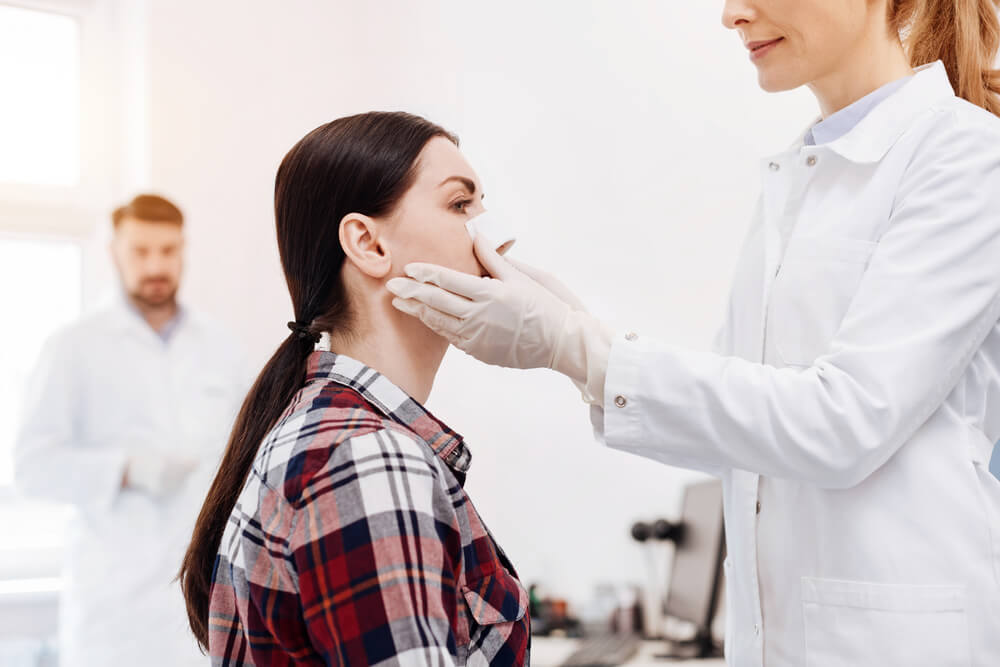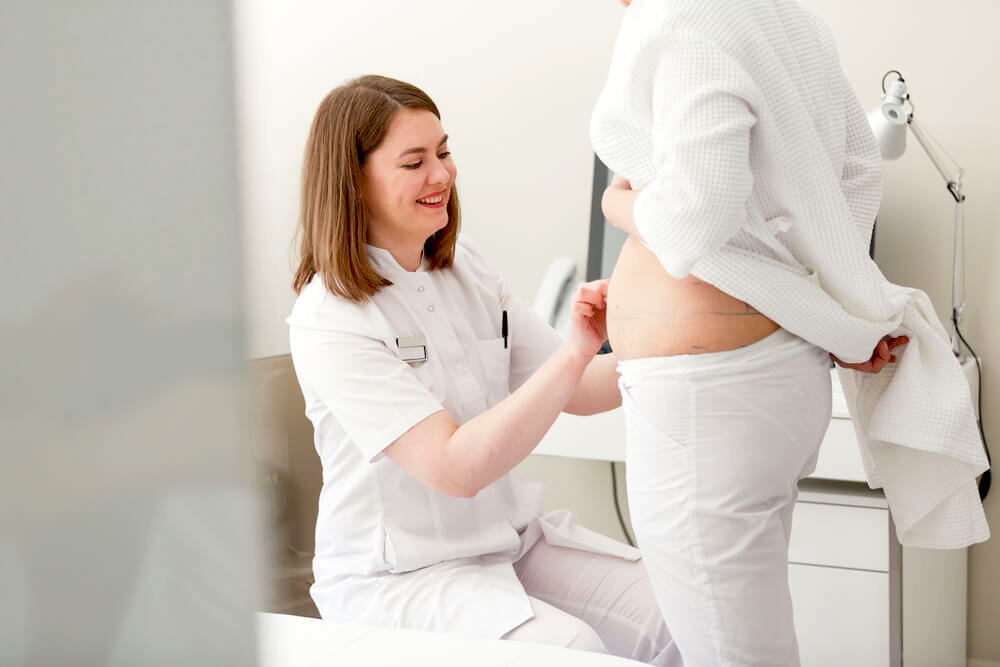11 Things to Know if You’re Considering Cosmetic Surgery

Cosmetic surgery is now more common than ever, with over 13 million women a year undergoing some sort of cosmetic procedure.
While all of the before and after photos that you see may look incredibly tempting, cosmetic surgery is still a form of surgery, meaning that this is something that you need to take extremely seriously.
Whether you have been thinking about a tummy tuck or a facelift, here are 11 things to know when considering cosmetic surgery.
You Should Consult Multiple Doctors
While you may absolutely love everything that the first doctor you visit is saying, it is so important that you speak to a few different practitioners before settling on one.
How many should you see?
At least three. This will give you a more rounded idea of your different options, and will also give you more time to digest all of the information that will be thrown your way.
There Are Different Types of Anesthesia
Did you know that there are actually four different kinds of anesthesia?
Here is a quick rundown of each one:
- Local Anesthesia – used to numb a small and specific area
- Intravenous Sedation – causes you to be extremely groggy, drifting in and out of sleep
- Regional Anesthesia – used to numb a larger area of the body
- General Anesthesia – puts the patient to sleep completely
You are probably wondering why this matters…
Well, how would you feel if you “woke up” in the middle of your procedure?
This is actually quite common, because while many patients expect to be put to sleep completely with general anesthetic, the anesthesiologist may only be intending to use intravenous sedation, causing you to sporadically drift into consciousness.
So, how do you get around this?
It’s easy…
All you need to do is speak to the anesthesiologist before hand so that they can answer any questions you may have.
Results Vary in How Long They Last
Many people are under the impression that cosmetic surgery results last forever, but this is not at all true.
Why?
Because your skin and body will still be aging, and there is nothing that you can do to stop this.
So, how long will your results last for?
This all depends on the type of surgery you are undergoing…
For example, a face lift that involves just the skin might only last for a year or so, but a face lift that also tightens up the muscles in the face could last for ten years.
Where Your Operation is Taking Place is Important
Cosmetic surgery procedures can be carried out in a few different places, such as a hospital, a surgical center, a doctor’s procedure room, or a reclined chair in a clinic office.
A surgeon may prefer to carry out a procedure in their office, but this means that you will not have immediate access to all of the facilities that a surgical center or a hospital could provide.
Reputable cosmetic surgeons will have privileges at different hospitals in the area, meaning that you should be able to request having your surgery carried out at a hospital if this is what you would prefer. Hospital privileges are also a sign that your surgeon is trusted for being able to carry out high quality procedures.
There is Always a Recovery Period
Cosmetic surgery will always require some sort of recovery period, and this varies greatly depending on the procedure being carried out.
Here are a few guidelines when it comes to recovery times for different types of cosmetic surgery:
- Breast Augmentations – one to two weeks, but any high impact activities, such as running, will require an additional wait
- Liposuction – one to two weeks, depending on the area of the body chosen for the procedure
- Blepharoplasty/ Eyelid Surgery – about ten days, although it will take a few more weeks, or even months, for swelling to completely fade
- Abdominoplasty/ Tummy Tuck – two to three weeks, but longer for physical activity
- Rhytidectomy/ Face Lift – within two weeks, but it takes about 12 weeks for healing to complete, and for the final results to be visible
- Rhinoplasty/ Nose Job – about ten days

Depending on what your daily schedule is usually like, you may need to make quite a few adjustments in order to allow for these recovery periods.
Here is an example of a more detailed recovery period for a facelift:
- Day 1 – you will be taking antibiotics and have a light head dressing, and will be drinking fluids by the evening
- Day 2 – you can go back to your regular diet now, while your dressing, as well as the drains in your neck, will be removed
- Day 5 – you will need to return to your surgeon to have some stitches removed, and undergo a scar management session
- Day 10 – all of your stitches will now be removed
- Day 14 – you will be able to return back to work
- Week 3-4 – you will have a follow-up with your surgeon and will be able to resume all normal activities, such as exercise
- Month 3 – another follow-up, this time with post-operative photographs
- Annually – annual follow-up visits are important for your surgeon to be able to monitor long-term healing
Speaking of adjustments in your life that you will need to make for cosmetic surgery…
Your doctor will give you pre and post-operative advice that you absolutely need to follow. For example, if you smoke, you may be asked to stop up to a month before your surgery, as smoking drastically impacts the way in which the body is able to heal and recover, while also increasing chances of complications.
Other changes may be in relation to your diet, medications you take and exercise that you can and cannot do.
All of this is so important to ensure that your surgery is a success, and the results are as good as they can be.
Recovery Can Be Painful
No matter what type of surgery you have, there is usually pain involved in the recovery period.
If there happens to be a complication, then this pain could be even more than you anticipated.
For those with a high pain tolerance, this may not matter so much. But, if you know that you are extremely susceptible to pain, and that this would severely impact your life, you need to be aware of what you are letting yourself in for so that you can come up with ways in which you will be able to handle the recovery pain.
There Will Be Scars
Have you seen advertisements for cosmetic surgery that will leave you with no scars?
If so, don’t believe them!
Scar-less surgery is all hype. Every time your skin is cut, it will result in a scar of some sort.
In fact, the scar is actually what patients use to monitor how their body is healing, as well as whether or not a procedure has been successful.

However, even though there will be scarring, cosmetic surgeons know what they are doing, and will try to minimize the impact of any scar as much as possible. But, if you love to wear certain types of clothing that would expose your scar in a way that you did not want it to, or are in a line of work that requires you to expose large amounts of skin, then the scarring may be an issue for you, so make sure to ask about it well in advance.
Complications Can Occur
Just like with any type of surgery, cosmetic surgery is susceptible to complications.
Common, and more minor, complications include:
- Infection
- Wound separation
- Abscesses
- Blood clots
If you are able to recognize the symptoms of these straight away, they are usually easily treatable.
However, there are also rarer, but more serious, complications that can occur due to cosmetic surgery…
These include:
- Permanent pain
- Disfigurement due to asymmetry or scarring
- Paralysis
- Death
Of course, as mentioned above, these complications are very rare, especially in the case of death. When compared to other types of surgery, cosmetic surgery death rates are quite low.
Why?
Because this is usually an elective surgery, meaning that a surgeon will not operate on a patient unless they are in good health. High risk candidates will usually be turned away and given advice on how to get their health to a place that allows for cosmetic surgery.
Nevertheless, it is important that you properly look into these complications and decide whether or not the surgery you are considering is worth the risk.
Fixing a Bad Plastic Surgery Job Has Even Higher Risks
Your best chance of actually getting the results you want is with the first procedure that you have, rather than with a secondary revision.
Revision surgeries can also bring about increased risks.
Why?
Because your tissues are already scarred, meaning that they are already experiencing an inferior blood supply.
As you can imagine, revision surgeries are something that you want to avoid as much as possible.
How can you do this?
Everything from choosing the right surgeon to following pre and post-operative advice can help.
You Need to Tell Your Surgeon Everything
In order for your surgery to really be a success, it is so important for your surgeon to be fully informed and have all of the facts when it comes to your life.
As mentioned above, smoking can severely interfere with the healing process, so you need to be completely honest with your doctor about how much you actually smoke.
Factors such as dietary supplements can also affect the way in which your body reacts to anesthetics, and the wrong interaction could even lead to death in some cases, making it vital that you tell your surgeon about any supplements you are taking.
Even everything from diet pills to fat enhancers can also interfere with the way in which your heart copes with the surgery, so these would also need to be disclosed.
Vitamins Can Help with Healing
While you do need to check with your doctor about vitamin supplements that you can take post-surgery, it would be well worth asking about this, as certain vitamins have been proven to increase the body’s ability to heal itself.

Some of the most potent vitamins include:
- Vitamin A – this can usually be started a week before surgery, unless you are pregnant
- Vitamin C – this can also be started a week before surgery
- Arnica Montana – a homeopathic remedy that can help with bruising and pain
- Bromelain – can be taken a week before surgery
Of course, when taking any vitamin supplements, the quality of the supplements you choose is so important, and can have a huge impact on how effective your supplements actually are.
Not sure how to go about picking your supplements?
Here are a few quick guidelines:
- Avoid any supplements that contain more than 100% of your daily recommended intake of any vitamin
- Look for supplements that have the USP, which stands for United States Pharmacopeia, symbol, as this is a sign that it is a quality product
- Many herbal additives are unnecessary, and only end up increasing the price of your supplements
- Generic brands are not necessarily worse than branded supplements, so make sure you check out the ingredients list to compare the two
Being so common these days, many people seem to forget that cosmetic surgery is actually quite serious, and really does come with a set of risks. No matter what type of cosmetic surgery you are considering, it is so important to have all of the facts first, so that you can make an educated and informed decision for yourself.

